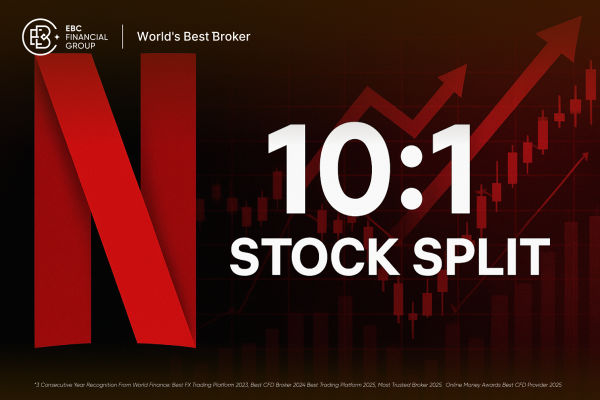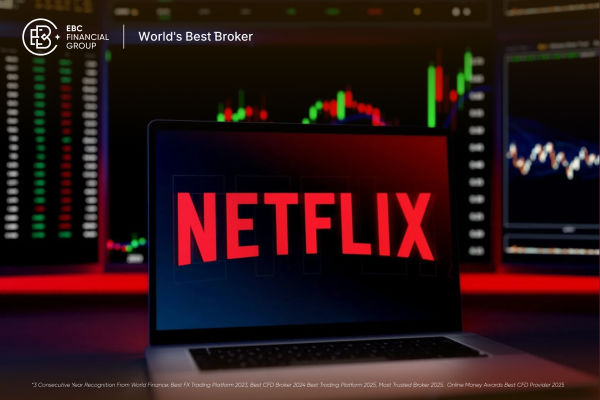Netflix's board has approved a ten-for-one (10:1) forward stock split announced on October 30, 2025. Shareholders of record at the close of trading on November 10, 2025, will receive nine additional shares for each share they own (distributed after the close on November 14), and Netflix common stock will begin trading on a split-adjusted basis at the market open on Monday, November 17, 2025.
The split is intended to make NFLX shares more affordable and improve accessibility, especially for employees participating in stock-option programs, without changing Netflix's market cap or underlying fundamentals.
After the announcement, the stock rose in after-hours trading (roughly +2–3%). Below, we will examine the official dates, the rationale for the decision, anticipated price fluctuations, and what investors should expect in the upcoming weeks.
Netflix Stock Split Date: The Exact Dates You Need to Remember
| Event |
Date |
| Shareholders of record date |
November 10, 2025 |
| Additional shares distributed |
November 14, 2025 |
| Trading commences on split-adjusted basis |
November 17, 2025 |
Trading will commence on a split-adjusted basis at the market opening on Monday, November 17, 2025. [1]
What Exactly Is Netflix's 10-For-1 Forward Stock Split?
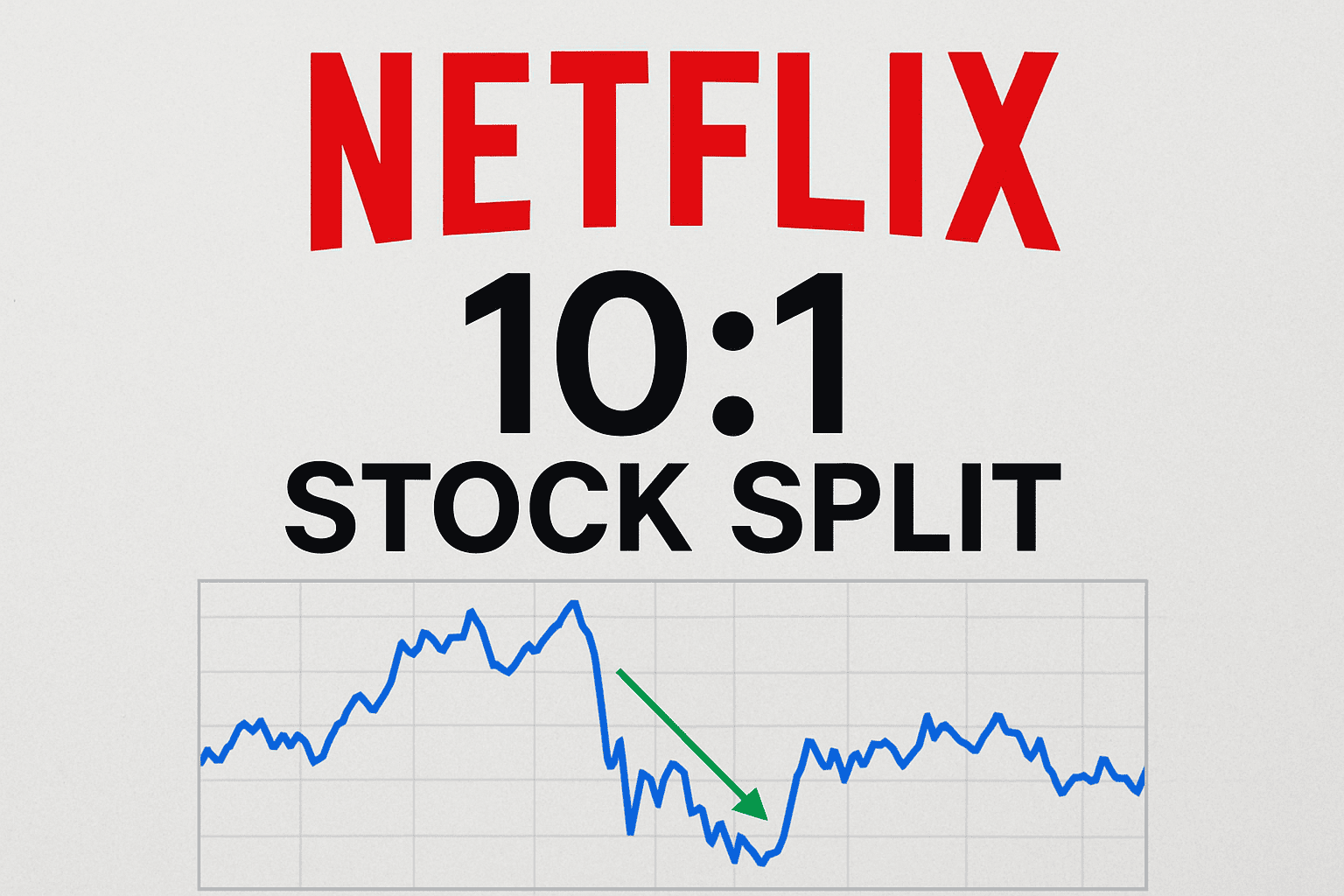
A forward stock split multiplies the number of shares outstanding and reduces the per-share price by the split ratio so that the total market capitalisation remains the same. In Netflix's case:
If NFLX was priced at $1,100 before the split, the estimated opening price after the 10:1 split would be around $110. The market capitalisation remains the same since the number of shares increases ten times while the price per share reduces to one-tenth. [2]
Why Netflix Did the Split?
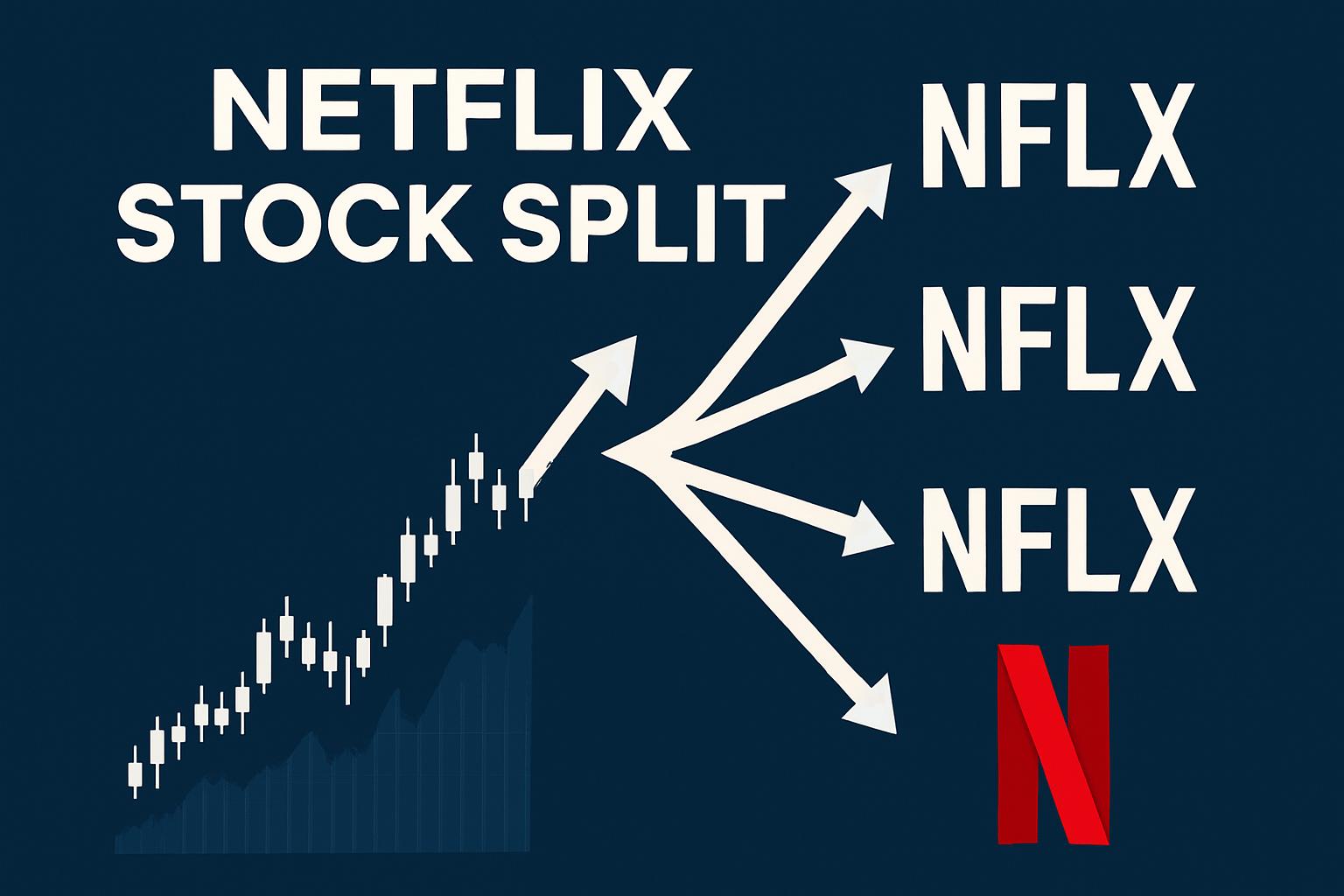
Netflix's press release and commentary from analysts emphasise three practical reasons for the split:
1. Accessibility for Employees and Small Investors
Netflix said the move was driven by accessibility for employees participating in its stock-option and equity programs. When a share price exceeds $1,000, exercising options or making small, recurring purchases becomes impractical.
A stock split reduces the price per share, facilitating broader participation and inclusivity.
2. Improve Liquidity and Tradability
Lower per-share prices often attract more retail trades and can increase the share turnover (liquidity). That can reduce bid-ask spreads and make it easier for small investors to buy round lots.
Several analysts noted that the split is intended to make Netflix shares more accessible to a broader range of investors.
3. Psychological and Market Signalling
A split can create fresh media focus and retail enthusiasm. While not changing fundamentals, the event often leads to short-term positive price action as retail flows and momentum traders react, which we actually observed after the announcement.
Netflix stressed that the split is a structural, administrative change (amending the certificate of incorporation and increasing authorised shares) rather than a capital-raising move.
Market Reaction & Price Change After Netflix Stock Split Announcement
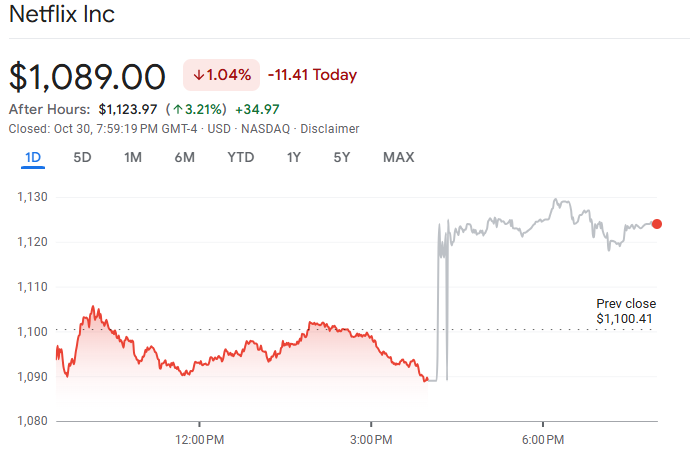
The market's immediate reaction was constructive:
1) After-Hours Move:
On the news, NFLX rose roughly 2–3% in after-hours trading (reports showed after-hours prints around $1,120–$1,123 depending on the feed).
That reflects the usual "split-pop" anecdotal effect that a high-profile split announcement can trigger.
2) What to Expect on November 17 (Split Trading Day):
On the first day of split-adjusted trading, the stock's per-share price will open at 1/10th of its pre-split level (all else equal). Market forces (supply/demand, news, earnings outlook) will then determine the real trading level.
Remember: an announcement-day rally doesn't imply the stock will continue higher after the split, as fundamentals, earnings and macro conditions will still drive medium-term returns.
How Often Has Netflix Split Stock Before?
| Split Year |
Ratio |
Approx Price Before Split* |
Approx Price ~1 Year After |
Approx Return |
| 2004 |
2-for-1 |
~$35 (pre-split) |
~$60 |
~ +71% |
| 2015 |
7-for-1 |
~$700 (pre-split) |
~$1,040 (adjusted)† |
~ +49% |
| 2025 |
10-for-1 |
~$1,100 (pre-split) |
TBD |
— |
Netflix has a concise split history:
February 12, 2004: 2-for-1 split.
July 15, 2015: 7-for-1 split.
The 2025 10-for-1 split is therefore Netflix's third stock split since its 2002 IPO.
Historically, stock splits have often coincided with long-term share gains and reflected management's intent to keep the stock accessible to investors.
Why it matters: While past splits do not guarantee future price increases, they suggest Netflix has typically used them at key inflexion points, usually following multi-year rallies to reset the per-share price and expand shareholder participation.
Could a Stock Split Now Affect Netflix's Inclusion in Indices or ETFs?
A split does not change market cap and therefore doesn't directly change index inclusion rules based on market cap. However:
Reweighting effects may occur if split-induced retail flows materially change the share price (short term).
Passive funds tracking market-cap-weighted indices will not adjust their holdings simply because of a stock split. Fund managers adjust share quantities to maintain a stable net asset value (NAV).
In essence, index inclusion is based on total market capitalisation rather than per-share price, so splits rarely trigger index adjustments on their own.
What Should Investors Watch Post-Split?
Trading Activity: Monitor for increased volume and volatility right after the split on November 17, 2025.
Price Movements: Though the price adjusts for the split, market forces can drive short-term fluctuations.
Company Performance: As always, Netflix's core metrics, including subscriber increase, content performance, and margin growth, will determine long-term price movements.
Sector Impact: Watch how this affects tech/media indexes and peer streaming companies.
Frequently Asked Questions
Q1: When Will the New Netflix Shares Start Trading?
Trading on a split-adjusted basis will begin on November 17, 2025.
Q2: Does the Stock Split Increase Netflix's Market Value?
No, it just increases the number of shares and reduces the price per share. The total value remains the same.
Q3: How Many New Shares Will I Receive?
For every share owned on November 10, 2025, shareholders receive nine additional shares.
Q4: Will the Split Affect Netflix's Stock Price Long-Term?
A: While splits can boost liquidity and appeal, long-term price depends on company performance.
Conclusion
In conclusion, Netflix's 10-for-1 stock split marks a pivotal moment in its two-decade growth story. By reducing the per-share price from over $1,000 to approximately $110, the company aims to broaden access, enhance liquidity, and reward loyal employees, without altering its fundamentals.
Short-term volatility is possible, but the split reinforces Netflix's image as a confident, maturing tech-media leader that continues to prioritise inclusivity and long-term shareholder engagement.
Investors should focus on content performance and earnings momentum heading into 2026, which will be the true catalysts for future gains.
Disclaimer: This material is for general information purposes only and is not intended as (and should not be considered to be) financial, investment or other advice on which reliance should be placed. No opinion given in the material constitutes a recommendation by EBC or the author that any particular investment, security, transaction or investment strategy is suitable for any specific person.
Sources
[1] https://ir.netflix.net/investor-news-and-events/financial-releases/press-release-details/2025/Netflix-Announces-Ten-For-One-Stock-Split/default.aspx
[2] https://www.reuters.com/business/media-telecom/netflix-announces-ten-for-one-forward-stock-split-2025-10-30/
